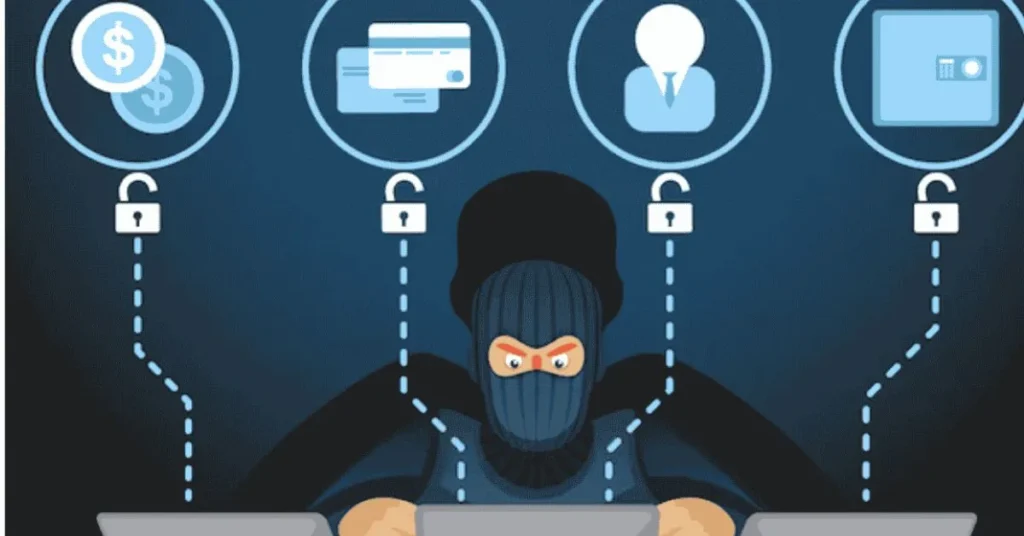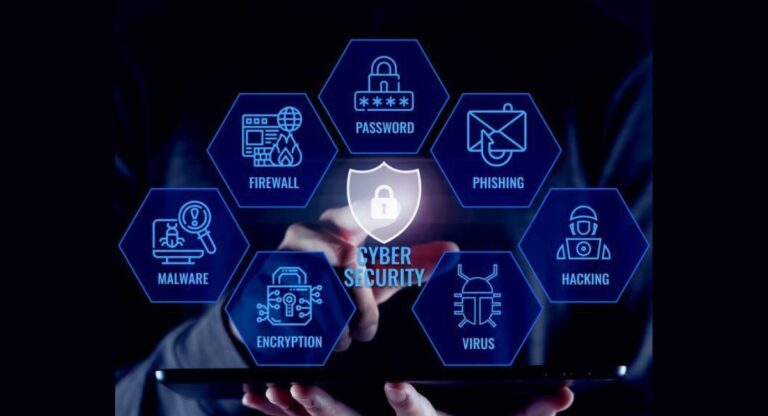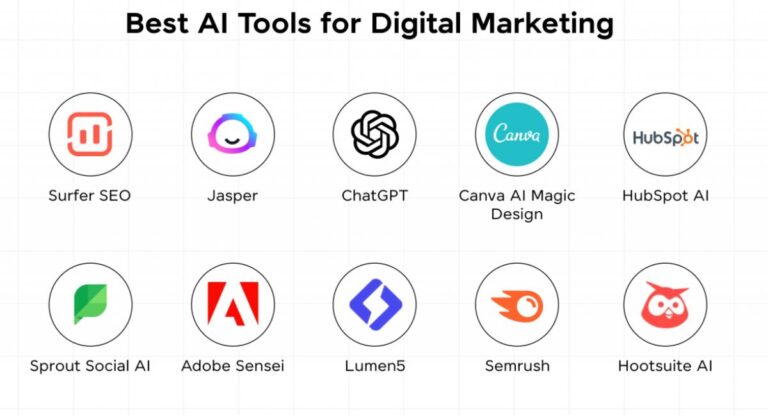Every business faces the risk of cybersecurity threats in this digital world. making protecting private business cyber defense more important than ever How can you protect your organization?
Cyber-attacks should result in
- Data insecurity.
- financial losses.
- damage to your reputation.
With the increase in these threats, taking some steps to secure your business is essential. This guide outlines key strategies for Protecting your defenses against cyber threats. Continue reading to learn more!
How do you find out about cybersecurity threats?
To effectively Protect your business, it is not easy to understand the various types of cybersecurity attacks. These attacks, ranging from ransomware to Trap are continuously evolving. Here are some common types to be aware:
Ransomware:
Ransomware is malware-protecting software. Once this malware enters a system, then users cannot access their essential documents, making critical data inaccessible.
Attackers typically demand payment in cryptocurrencies, complicating transaction tracing, and no guarantee paying the ransom will result in data recovery. Businesses can suffer significant financial losses, not only from the ransom but also due to downtime and recovery efforts.
Phishing:
Phishing attacks involve scam emails that trick employees into disclosing sensitive information. These emails are designed to look like they come from trusted sources, leading recipients to click on harmful links or provide personal details.
When a user gets trapped in a phishing attack, he may lose valuable data, personal identity, and even money. Daily and Weekly training on Cybersecurity Fraud Awareness. training helps employees to prevent such types of Cyberattacks.
Malware:
Malware is internal software designed to disrupt or gain unauthorized access to systems. It encompasses various types of harmful software, each with different methods of attack and potential impacts.
Once installed, malware can steal sensitive information, corrupt data, or even take control of entire systems. Organizations should deploy robust security measures, such as firewalls and antivirus software, to effectively detect and counter malware threats.
Denial-of-Service (DoS) Attacks:
DoS attacks aim to overwhelm systems, causing downtime and rendering them inaccessible to legitimate users. By flooding a server with excessive traffic, attackers can disrupt services, leading to operational losses and damage to reputation.
These attacks can be particularly devastating for businesses that rely on online services, as prolonged downtime can result in lost revenue and decreased customer trust. Implementing traffic monitoring and rate limiting can help mitigate the risk of such attacks and maintain continuous service availability.
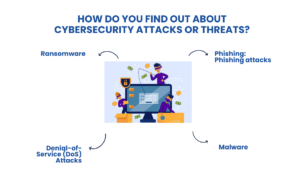
How to protect your business from cybersecurity threats? There are some Cybersecurity Solutions.
Currently in the digital world, securing your business from cyber threats is topmost. Cybersecurity threats or attacks for small businesses regularly, and the impact of an attack breaking your operations and reputation.
Implementing effective cybersecurity solutions is harder, it is not easy to defend against these attacks. Below are some important strategies to consider:
Firewalls and Antivirus Software
Using firewalls and antivirus software for business protection on your systems or servers is Primary. Firewalls act as the first line of defense by blocking unauthorized access to your network and filtering incoming and outgoing Software works.
This helps protect sensitive data from hackers and cyber attackers. Same as the best antivirus software for business detects and eliminates harmful applications before they can cause damage to your systems or software.
Note that both firewalls and antivirus programs are regularly updated. and trigger regular scans to identify and remove harmful threats.
Regular updates are not easy because cybersecurity solutions for small businesses are ever-changing, and outdated security software is harmful to your business security.
Employee Cyber Awareness Training
Cybersecurity employee training programs are important because employees are well-known as the first line of defense in your cybersecurity strategy. Many cyberattacks, like phishing scams, target employees through email or other communication strategy.
Therefore, providing regular cyber awareness training to employees is highly important.
Note the below points
1.Idea about phishing attempts and suspicious emails.
2.Record and gain potential security incidents.
3.Note down safe browsing and password management.
4.Training-based phishing trials for employee training can be an effective way to test awareness and prepare them for real threats. you reduce the risk of real Cybersecurity attacks, By Creating a security-conscious workplace culture.
Data Protection and Encryption.
Data encryption for business security transforms data into a coded format that can only be decrypted with a specific key. sensitive data ensures that Encoding with encryption, even if unauthorized individuals gain access to it, they cannot read or use it.
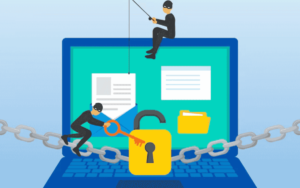
Why Encryption Matters:
- Protects sensitive customer information and financial data.
- Ensures regulatory compliance, especially in industries like healthcare and finance.
Encryption is particularly critical for businesses handling large volumes of personal or financial information, Encoding with encryption leads to Saving legal and financial data. where data breaches in small businesses.
Developing an Incident Response Plan.
An incident response plan for cyber attacks is important for minimizing damage and quickly recovering from a cyber attack. This plan should outline how your organization will detect, respond to, and recover from a cyber incident. It involves the following stages:
- Positions: Ensure all team members understand their roles during an incident. Conduct regular Training activities to get these responsibilities.
- Detection and Analysis: Monitor systems for unusual activity, using automated tools to enhance the speed and accuracy of detection.
- Containment: Isolate affected systems quickly to prevent further damage. Keep stakeholders informed of the situation.
- Clearing and Recovery: Remove the threat, restore affected systems, and resume normal operations to ensure that all security measures are Backed up.
- Post-Incident Review: Conduct a thorough analysis to determine what happened and how small businesses can prevent cyber-attacks in the future.
A structured cyber incident response plan for small businesses helps contain threats more efficiently and improves your organization’s overall cybersecurity goal.
Conclusion: Take Action Against Cybersecurity Threats Today!
Cybersecurity threats is an ongoing process that requires constant Awareness and updates. By understanding the nature of cybersecurity risks for businesses, implementing automated cybersecurity solutions, and developing a comprehensive incident response plan for businesses, you can protect your business from devastating cyberattacks.
Remember, being proactive and regularly Reviewing your cybersecurity measures is key to Protecting your business from Cybersecurity attacks. Take action today to protect your business from cyber threats and secure your future.

